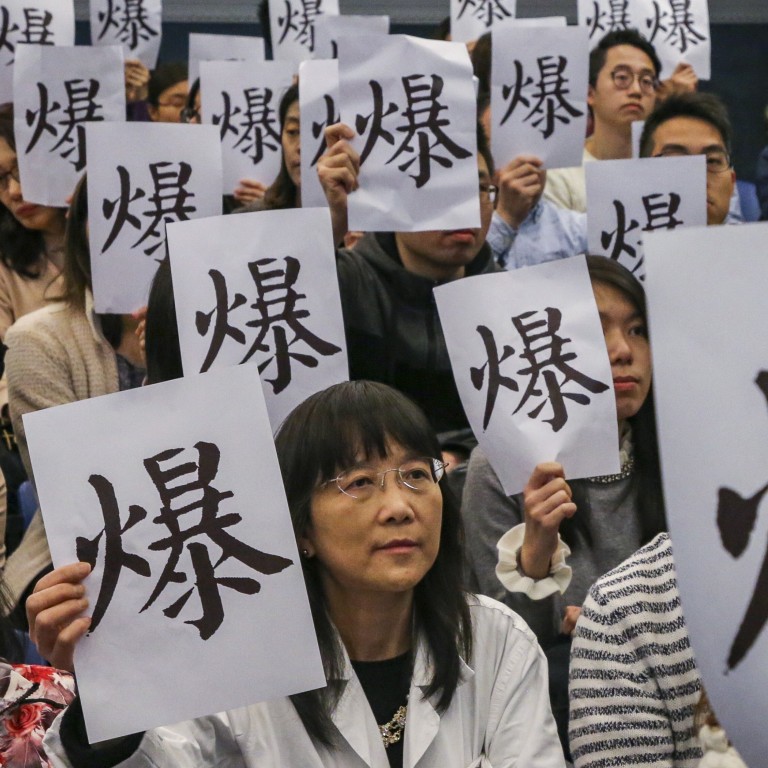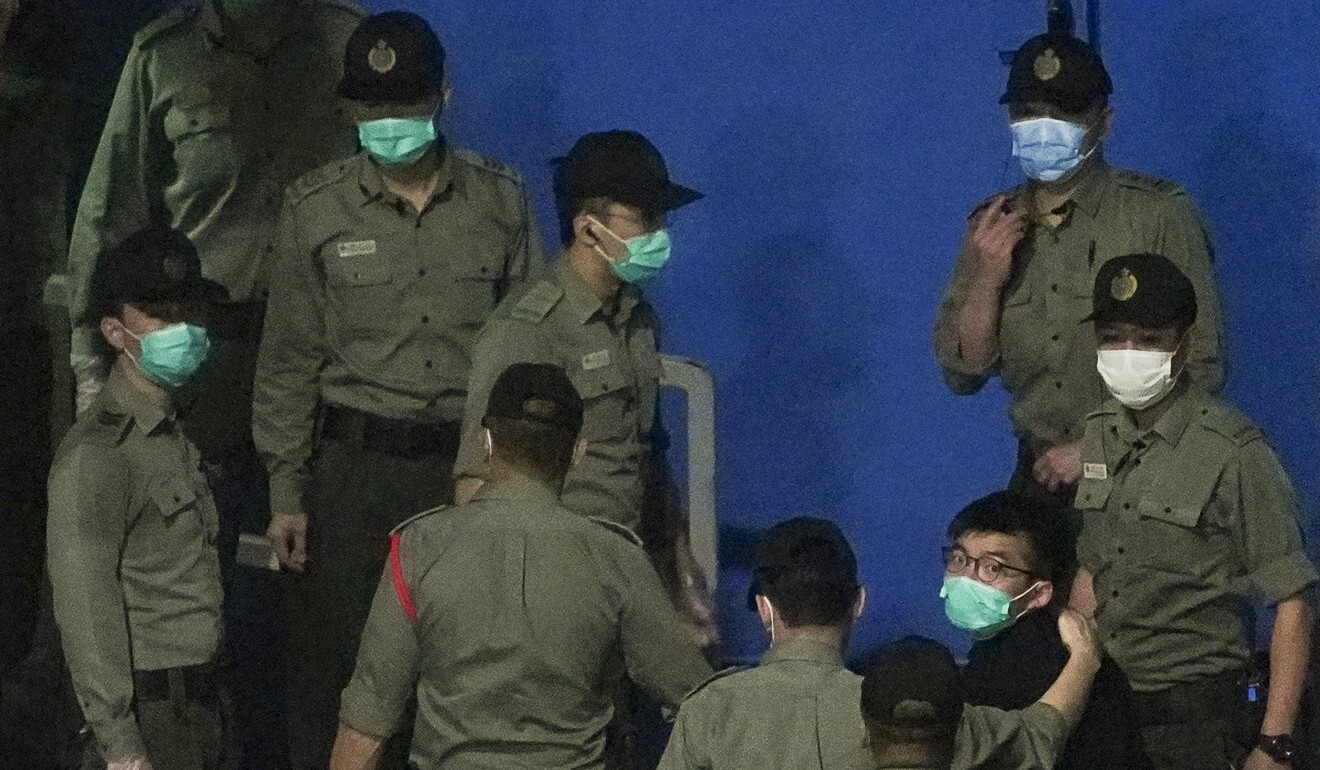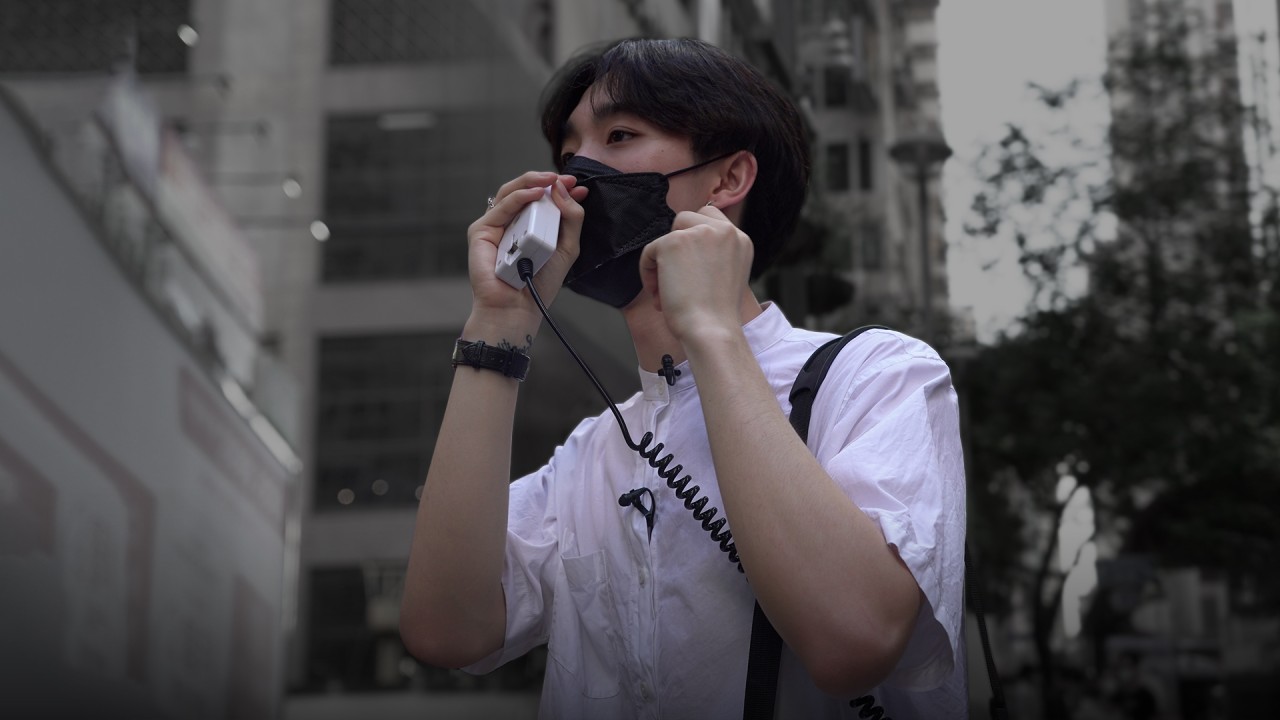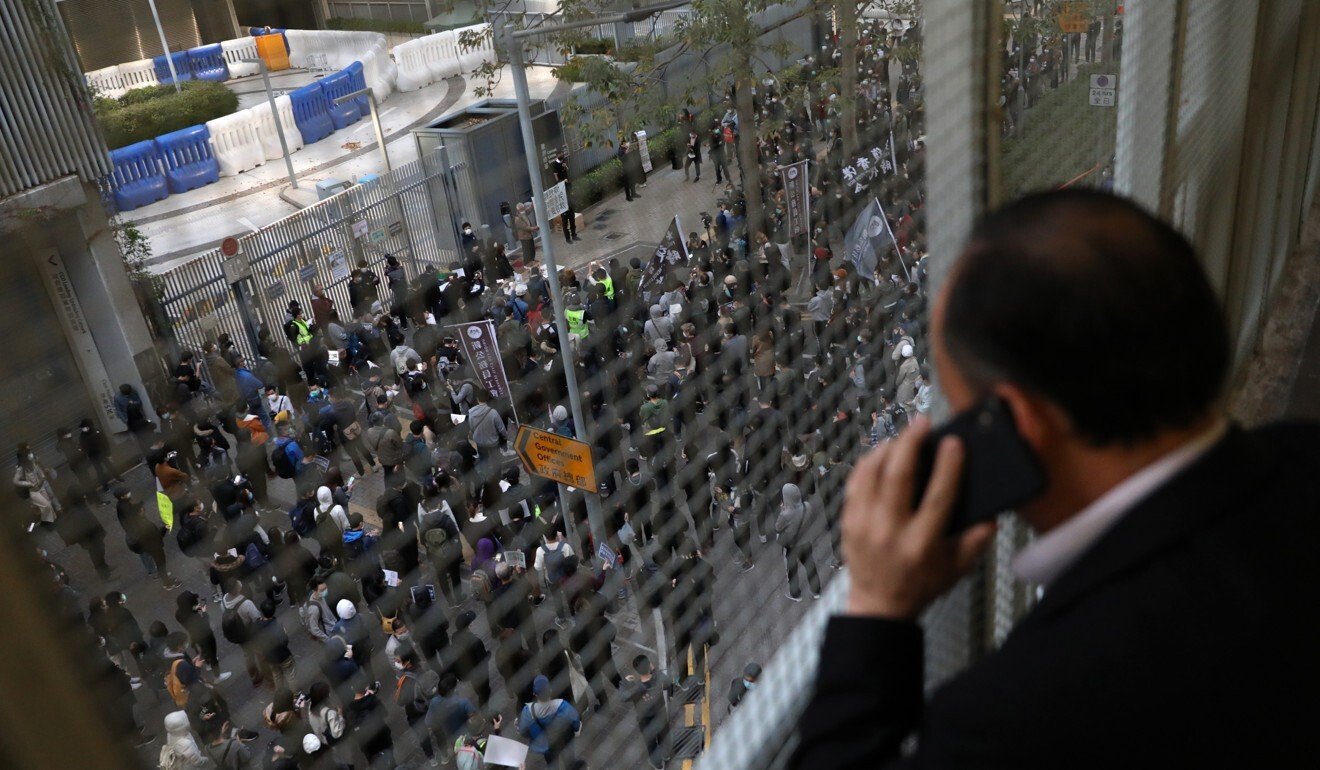
Fresh wave of Hong Kong unions, civil society groups disband over fears of vague ‘red lines’ under national security law
- Even moderate groups are breaking up after Apple Daily arrests, other recent events sent chilling message that activism is too risky now
- At least 21 groups have disbanded in past year, with latest ones saying uncertainty over law left them without ‘confidence to carry on’
Academics say last month’s arrests of top executives at the Apple Daily newspaper, on top of the charges levelled against dozens of activists and opposition politicians – as well as the recent promotion of Hong Kong’s security chiefs and the heavy police presence at public events – have all sent a chilling message that activism is not only pointless now, it is risky too.
However, at least three new activist groups – with members in their late teens and early 20s – have emerged, vowing to press on with expressing their political beliefs and testing the limits of the security law, which bans subversion, secession, terrorism and colluding with foreign forces.
UN rights official seeks access to Hong Kong amid security law concerns
“The authorities are remaking Hong Kong in the mainland’s image and sanitising our civil society,” said Professor John Burns, who specialises in politics and public administration at the University of Hong Kong.
“They are limiting the ability of the people of Hong Kong to participate in public affairs, which the government appears no longer to value.”
Pro-Beijing scholars suggested that with Beijing’s intolerance of events organised by the city’s opposition, it was time for the camp to re-evaluate its relationship with the central government.
‘No confidence to carry on’
A count by the Post found that at least 21 political and civil groups have broken up over the past year, with the first wave occurring within hours of the national security law’s enactment on June 30 last year.

Some leaders of these groups left Hong Kong, vowing to continue their advocacy from overseas.
Over the months that followed, the city’s opposition and civil society circles maintained a wait-and-see attitude.
More groups proceeded to announce their disbandment, including some related to those charged.
They included district-based organisations such as Kickstart Wan Chai – formed by activist Clarisse Yeung Suet-ying, who was among the 47 charged – and Power for Democracy, a mediating platform for opposition parties to coordinate their activities.

06:44
National security law one year on: Hong Kong activists still testing political ‘red lines’
At least seven groups have since announced that they were breaking up, including the NeoDemocrats and two concern groups formed by doctors, the Frontline Doctors’ Union and Médecins Inspirés.
The Progressive Lawyers Group, which had been outspoken on legal issues, shut down its website and most members stopped commenting on matters relating to national security.

District councillor Kwan Wing-yip, who was a member of the NeoDemocrats, said its disbandment was for good, especially because members were not sure what activities were permitted under the national security law.
“The recent arrests of Apple Daily executives told us that past actions – even from before the new law was imposed – could be taken into account, and we did not have the confidence to carry on,” he said. “I know seeing all these disbandments is extremely discouraging, especially to supporters of our camp.”
The Frontline Doctors’ Union announced it was disbanding last week after it could not get members to form a new committee, the first time that had happened since 2002.
Dr Johnson Sin, former chairman of the union for doctors in public hospitals, said it was a pity that no one showed interest in forming a committee this year.
US human-trafficking report adds security law to list of Hong Kong concerns
A former committee member who preferred to stay anonymous said nobody was willing “to take up responsibilities on the front line” because members were worried that even a trade union could face danger in the current political atmosphere.
This was especially true if some of the group’s aspirations involved the government or the mainland, the member said.
‘Beijing is not done yet’
“The Chinese Communist Party and our government perceive that they may ignore public opinion,” he told the Post. “Many civil society organisations, including political groups and the media, attempted to shape public opinion and to compete for popular support. But if public opinion is irrelevant, their purpose disappears.”

Dr Cheung Chor-yung, a political scientist at City University, said it was understandable that moderate political and civil society groups had chosen to quit, as the red lines under the national security law remained too vague and people were left wondering if they might be the next target.
Although the law did not mention retrogressive power, he said, the arrests of the Apple Daily executives suggested that even articles written before its enactment might be taken into account.
“The punishments under the law are also worrying, as one can see it’s hard to get bail once you were charged by the national security unit,” he added.
“The past year has been quite threatening. I guess the remaining groups, and especially some newly formed groups, are the ones that refuse to give in, but I also worry that they might be the next targets.”
Distributor of protests film loses funding over claim movie ‘beautifies riots’
One of the new groups set up since the arrival of the national security law is Local Youth Will, formed in May by Chinese University political science student Lo Tsz-wai, 21, and about 10 friends.
The first thing the localist group did was to hold an exhibition of events from 2019’s social unrest, aiming to provide a perspective separate from the official version. Short videos and photographs taken by members of the public were exhibited in a Sham Shui Po studio for around two weeks last month.
“We have to accept the reality that the law has been imposed, but that does not mean we have surrendered or are restricted from doing anything,” Lo said. “Under the law, we just need to keep a low profile, to continue to be careful about our words and behaviour … while waiting for the next democratic movement.”

Another new localist group with about 30 members, Student Politicism, has declared its mission to test the red lines of the national security law.
Convenor Wong Yat-chin, 19, has already been arrested five times during the past year, mostly for obstructing police officers and public disorder as the group was setting up street booths to distribute leaflets.
Librarian suspended after Jimmy Lai books put on recommended reading shelf
Speaking to the Post before his arrest, Wong, a secondary school graduate, said his group began discussing how to motivate others after protests died out during the pandemic last year.
“What we’ve done has been very peaceful compared with 2019,” he said. “We want to play a role in testing the national security law, as the red lines are always shifting and I never know when the law will catch me or other political groups and activists.”
Even though other activist groups have disbanded, Wong said he wanted to fight on, and believed that if demonstrations were allowed again when the pandemic was over, millions of Hongkongers would come out.
Xi urges Hong Kong to ramp up national security efforts
However, Lau Siu-kai, vice-chairman of the semi-official Chinese Association of Hong Kong and Macau Studies, warned it was “too naive” to think that Beijing was done with exerting its control over Hong Kong.
“The central government hopes to break the old mindset of governing Hong Kong, and will suppress chaos at any cost,” he said, adding that he was surprised by the determination shown by Beijing over the past year.
“Whether the national security law is effective does not depend on how many people are convicted, but on how it can prevent others from committing similar offences. The law’s effect lies in its chilling and shocking power,” Lau said.

